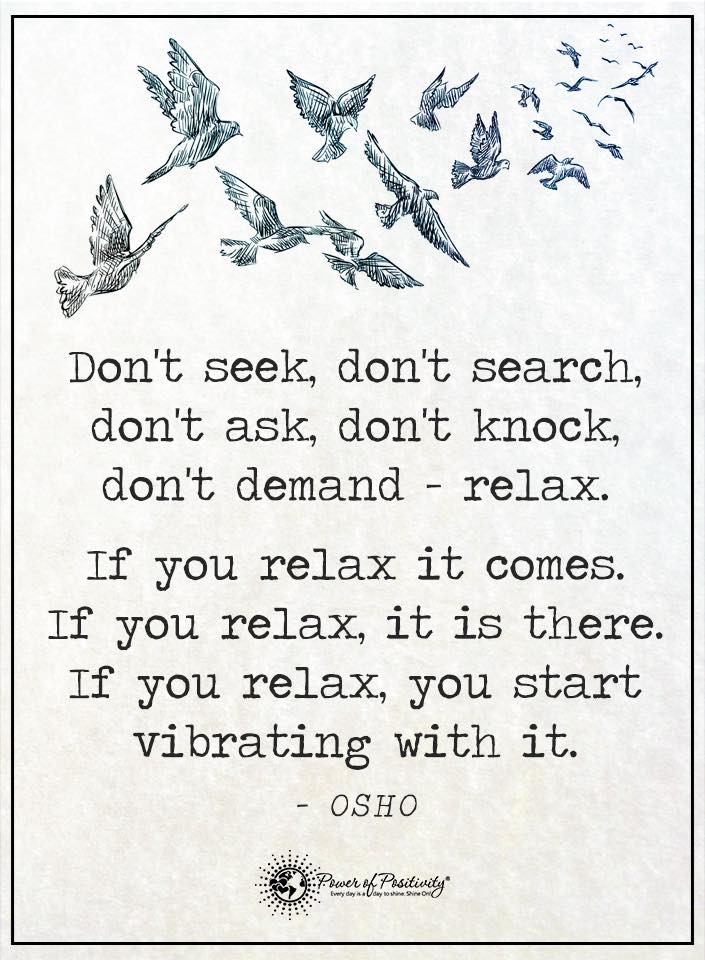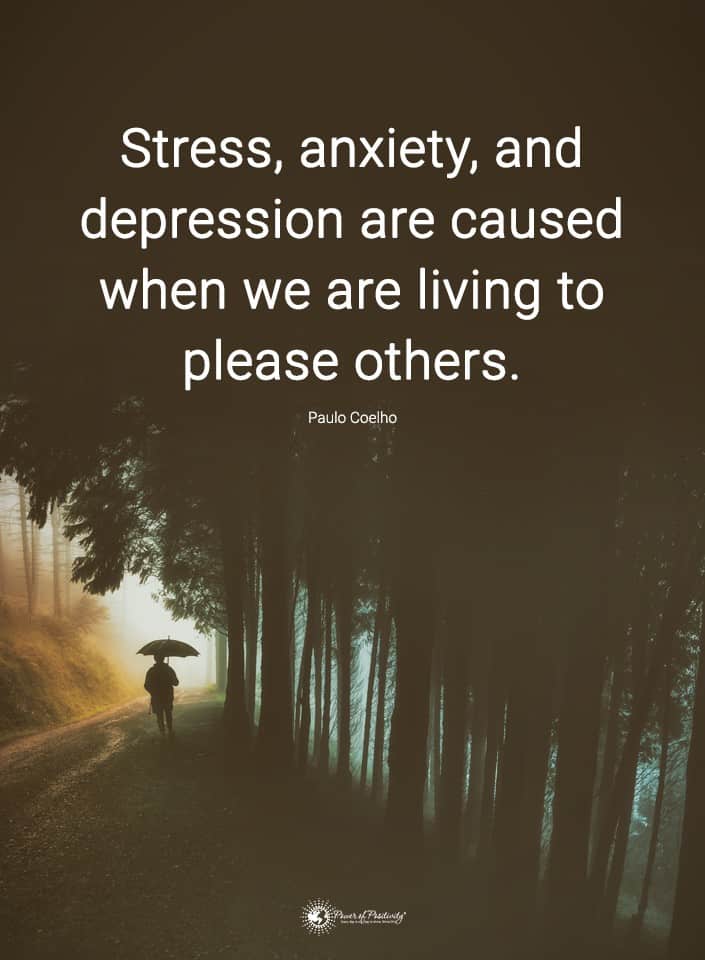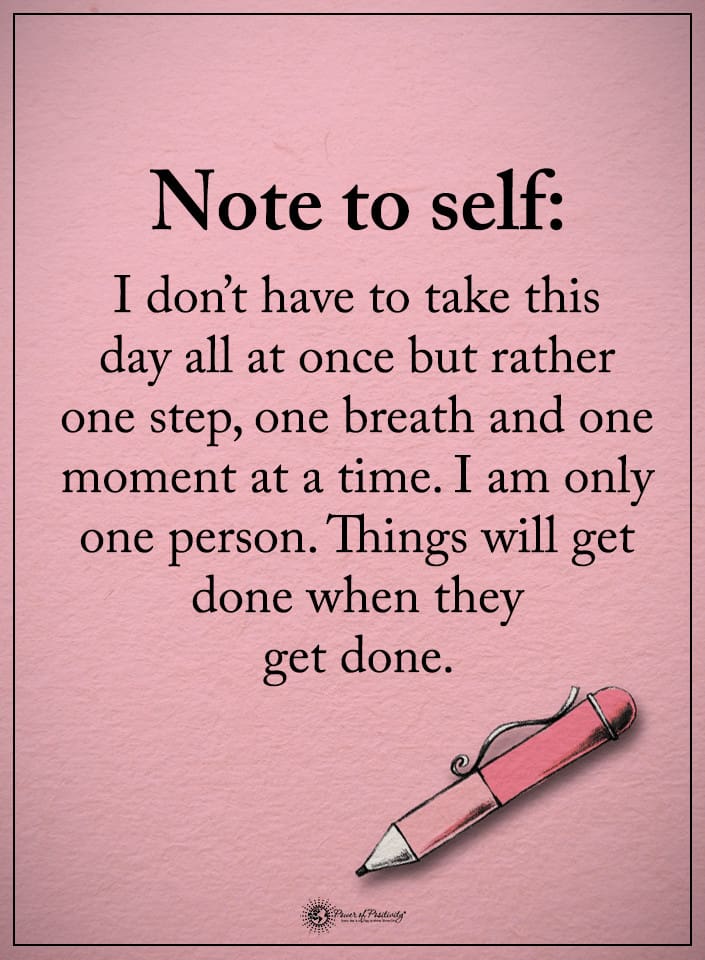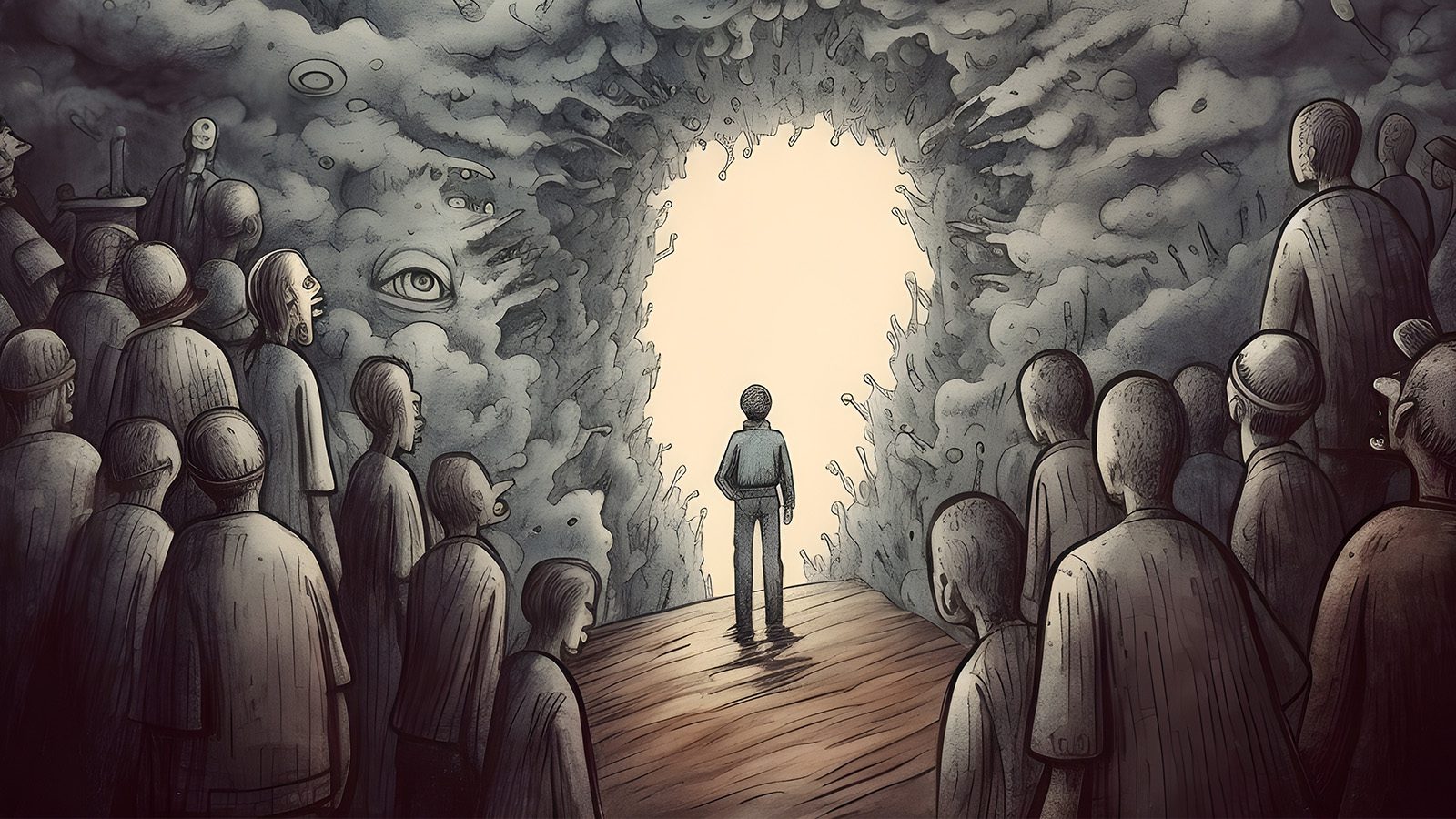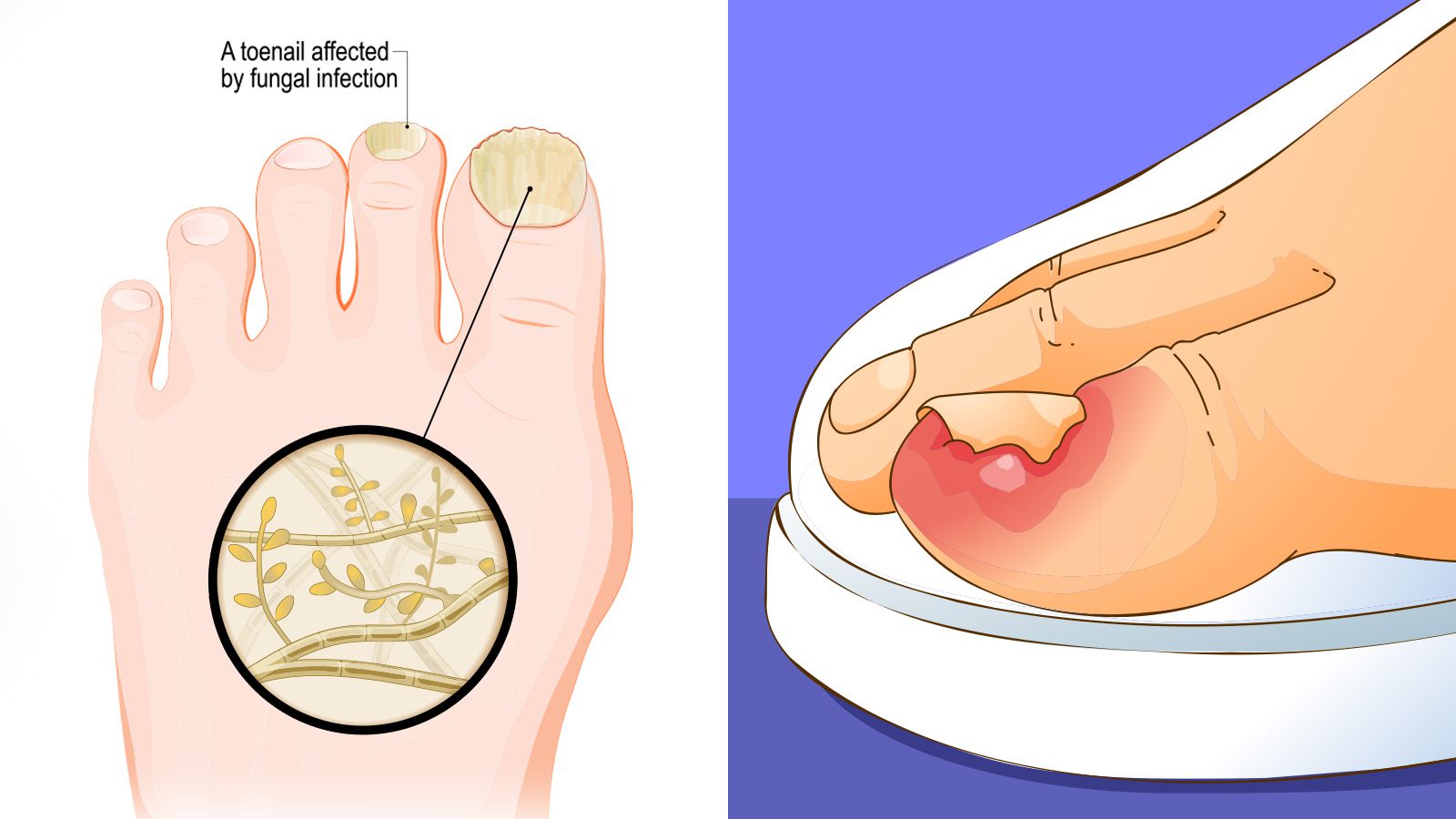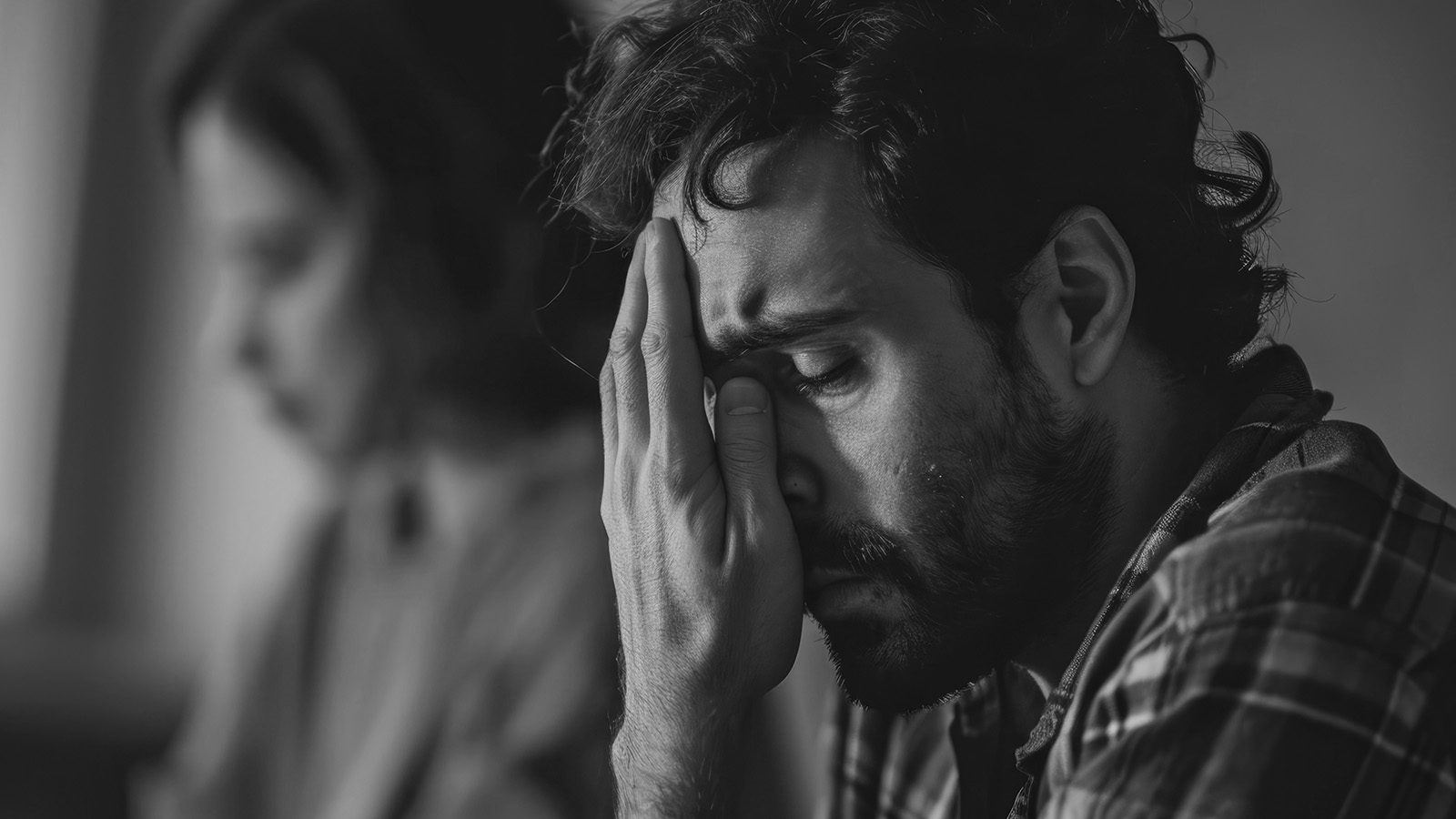With so many people in today’s world feeling overwhelmed by anxiety, we need more collective relief than ever. The world continues to move at an increasingly fast pace, which would give even the calmest person a bit of anxiety. It happens to the best of us, but sometimes, the anxiety can feel debilitating. When will it end? When will we find the answers inside ourselves we so desperately seek?
Of course, we can all take preventive measures to keep our anxiety in check, but it can creep up when we least expect it. Anxiety weakens our defense mechanisms and keeps us on high alert, even if we don’t sense an immediate threat to our survival. Although anxiety can feel very real, it absolutely begins in mind. To correct and heal our anxiety, we must first work on calming our brains and teaching them to look at the world in a different light.
10 Things to Tell Yourself When Anxiety Attacks
If you are one of the millions of people worldwide who struggle with anxiety, keep reading because this article is for you.
1. “I love you.”
Many people feel incapable of being loved due to their anxiety and hate themselves for something out of their control. Doesn’t this seem silly when you truly think about it – to hate yourself for having a mental disorder that runs itself like a perfectly programmed machine? Anxiety seems indestructible and everlasting and conquering it can feel like a constant uphill battle. However, to truly learn how to heal or manage your anxiety, you have to love yourself fully, anxiety and all. You can’t dismiss any part of yourself that you feel is unworthy of love because anxiety makes up your being, at least partially.
It doesn’t have to rule or own you, but it’s there. So, accept this and learn to love the person inside. As they say, the first step to recovery always begins with acceptance and understanding of the problem.
2. “At this moment, is there truly anything that can hurt me?”
Oftentimes, people with anxiety have entirely different brains that those who don’t suffer from the disorder. In fact, a study published in the journal Current Biology shows that people with anxiety have less of an ability to distinguish between a genuine threat and a “safe” stimuli. Why? For brevity, people with anxiety basically have different wiring in their brains than “normal” people, resulting in a more anxious perception of the world. Their amygdala, or the brain region responsible for regulating emotions, essentially tells the mind to feel fear and sends that signal out to the other parts of the brain that help process emotions.
Despite this evolutionary response that seems stronger in those with anxiety, you CAN actually reprogram your brain through mindfulness meditation and other practices that help to calm and relax the mind. We all have synapses in our brains, gaps between two nerve cells that send impulses to the rest of the body. Although genetics do matter regarding the likelihood of having anxiety, you can learn to manage it by looking at your environment objectively. Ask yourself if anything can truly hurt you at the moment that should make you feel anxious. If not, take a few deep breaths, center yourself, and respond to the stimuli as mindfully and calmly as possible. Our brains change based on habits and learned behaviors, so give it a try yourself.
3. “Take deep breaths.”
Many times, those with anxiety have forgotten how to breathe. In our fast-paced, hectic lives, something that seems so simple in childhood can easily be forgotten. We don’t spend enough time relaxing, and therefore, our breath becomes shaky and hurried. Take a few moments to relax into slow, deep breathing when you feel an anxiety attack. This will help you to react calmly and not let your anxiety win.
4. “You CAN do this!”
Do you find yourself doubting and questioning yourself frequently? If so, this can greatly exacerbate anxiety and may even cause it in some cases. The next time you feel an anxiety attack and start to lose faith in yourself, say this powerful mantra in your mind. Many people with anxiety also suffer from low self-esteem due to the effects of their disorder, and they also tend to have high levels of sensitivity. So, boosting your own confidence can help you combat anxiety and stand up to the demons in your mind.
Believe in yourself, and anxiety will shrink in the process.
5. “Why am I feeling this way right now?”
Unfortunately, many of us have become out of touch with ourselves and our emotions. Instead of tending to everything outside ourselves that demands our attention, we don’t tune in enough to our innermost thoughts and feelings. Each day, remind yourself to slow down and pay attention to your feelings. If you find yourself feeling anxious, ask yourself why. Is something in your environment making you stressed? Can you change this situation to eliminate the source of the anxiety? Simply becoming mindful of how your mind works can do wonders in helping you treat your anxiety naturally.
6. “This feeling will pass.”
When you have an anxiety attack, it can feel like the absolute end of the world. Especially if you have a panic attack in a busy place, it isn’t easy to bring yourself back into the present moment. The panic increases your cortisol, putting you in fight-or-flight mode to have no choice but to respond to the perceived threat.
At that moment, go to a quiet place, remember to take deep breaths, and remind yourself that you have nothing to fear. Anxiety attacks can be debilitating, but telling yourself that the feeling will pass, makes them easier to manage. They won’t seem threatening anymore when you remember that what goes up must come down. In other words, anxiety causes an increase in adrenaline, but it must return to baseline levels eventually.
Once the perceived threat is gone or you can bring yourself down with relaxation techniques, you’ll feel relaxed again.
7. “You are safe, and there’s nothing to fear.”
Remember that fear only exists in your mind due to preconditioned responses and personal perspective. What causes alarm and dread for one person may excite the next person. So, it’s all in how we look at the world. That doesn’t mean anxiety isn’t real and that your feelings aren’t valid.
However, it’s possible to reprogram your brain through habit and positive thinking. If you consistently tell yourself that you have nothing to fear and you’re capable of anything, you’ll start to believe it. The mind sees the world through a certain lens based on your predominant thoughts. So, over time, you need to choose more positive thoughts or quiet your thoughts altogether.
Then, you can see the world through an unbiased lens as it really is, rather than how you’ve been programmed to see it.
8. “I am not my anxiety.”
Many people with anxiety tend to see themselves as frazzled, worried souls. They can’t see themselves through any other lens except this one, and unfortunately that only causes greater anxiety. It’s a vicious circle, but it’s important to remember that you’re much more than your anxiety to escape. In fact, you’re not anxious at all – that’s just a response from your brain to external stimuli.
You’re a soul trying to navigate this world just like everyone else. Please don’t limit yourself to labels such as “anxiety,” “depression,” or other disorders. Again, we’re not trying to discount anyone’s feelings or diagnoses here. We want to remind you that you can take your power back by seeing the bigger picture. Your feelings aren’t you – they’re just phenomena passing through your consciousness.
9. “Be here now.”
We often feel anxiety because we want to escape a certain situation. If we fear something or feel uncomfortable, our brain signals that we run to keep us safe. Unfortunately, our ancient brains haven’t learned the difference between real or perceived threats, especially in this modern world with overwhelming stimuli. So, your brain can’t differentiate between a busy intersection and a tiger baring its teeth; it views both as threats.
However, we know rationally that we’re not in real danger most of the time. By tapping into your logical brain rather than pure emotion, you can train yourself to feel calm in any situation. Often, the only way to quell the anxiety is to sit through it and allow it to pass. You may wonder why you should put yourself through this suffering at all.
By remaining still and not reacting to the anxiety, you will teach your mind and body that they’re safe. Being in the present moment and practicing mindfulness can help you become less reactive to stimuli. So, feel the fear and remember that it will pass. Watch it as it rises and dissipates, knowing that you’re not your thoughts.
10. “I am in control.”
When you have an anxiety attack, it can make you feel out of control and unable to make decisions. We naturally want to feel safe and secure, but anxiety keeps us on alert. It doesn’t want us to put our guard down since that could threaten our survival. Once again, you have to remind yourself that you’re in control of how you react to the world.
Anxiety may want to run the show, but it only makes life miserable at the end of the day. Start thinking of your anxiety as something that doesn’t have your best interests. While it does come in handy during pure survival situations, most of the time, it only complicates life. Remind yourself that you’re in charge, and don’t let your anxiety overrule you.
When you feel scared of something, remember that you’re naturally responding to new or overwhelming stimuli. However, you can choose to move through that fear instead of succumbing to it. At the moment, you may feel completely unable to exert control, but you’re capable of overpowering your animal instincts.
Also, give yourself grace since we still haven’t evolved to this modern world yet. It takes patience and compassion to rewire our brains and adapt to living conditions that aren’t familiar to us. Hopefully, these mantras above will help you manage anxiety and feel more comfortable in everyday life.
Final Thoughts on Managing Anxiety Attacks
Anxiety attacks can come on suddenly, without any warning, and for seemingly no reason. You may not even feel anxious before it hits you like a freight train. However, people with anxiety often have chronically high cortisol, so being in fight-or-flight mode is their default nature.
If you have anxiety attacks, remember to ground yourself in the present moment and tell yourself that you’re safe. Remember that the feeling will pass, and you’re more than your anxiety. Practice mindfulness and self-compassion, and your anxiety will start to fade before you know it.


